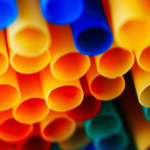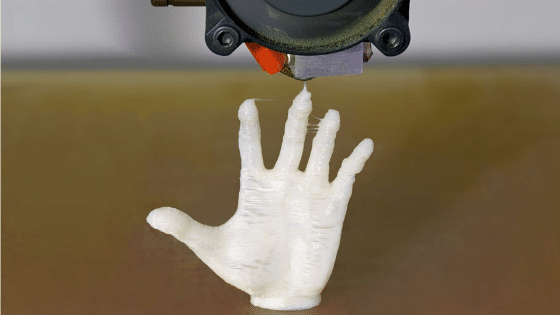Australian Scientists’ Breakthrough Discovery: Plastic-Eating Fungi 👨🔬
Energy Disrupter
Plastic-eating Fungi 👨🔬: Scientists from Sydney, Australia recently made a breakthrough discovery that could highly benefit our planet. They have discovered two types of fungi capable of breaking down plastic. This discovery has the potential to revolutionize waste management efforts, giving us a bit of breathing room and significantly reducing plastic littering in our oceans and natural ecosystems. Not only does this discovery showcase the incredible innovation capabilities of science, but it is an incredibly exciting reminder that nature can be our greatest asset when we work together with it! Learn more about these plastic-eating fungi by reading this blog.
Here at Waster, we always like to emphasise the importance of plastic reduction. For far too long, we have relied on plastic products as we go about our daily lives. Equally long is plastics harming our environment.
Australians, in particular, produce and utilise a lot of plastics each year. On average, every Aussie uses 45 plastic produce bags, 50 plastic straws and about 70 plastic cups for hot liquid and 35 for cold, according to the Sydney Morning Herald‘s article last year that referenced the Australian government’s 2021 commissioned report.
>Download Now: Free PDF Business Owners Guide To General Waste Bin Services
This alone should alarm every citizen in Australia and strive to remove, or at the very least, reduce plastic usage.
The brilliant minds of Australia have, fortunately, come up with a breakthrough discovery that could see the sustainable breakdown of plastics. To put it in another way, Australian scientists have discovered plastic-eating fungi. Below, we cover more about this backyard mould that is said to break down plastic in as fast as 140 days. So, we suggest you continue reading to learn more!
More on plastic-eating fungi
Australian scientists have successfully concocted a way to break down the most stubborn of plastics: by utilising backyard mould. This is, of course, a very welcome innovation to improve the low recycling rate of certain plastics.
To expand, scientists at the University of Sydney conducted experiments and published a science journal on newly-discovered two types of fungi that they could cultivate and use to attack small samples of polypropylene, a type of plastic, which we use to create items such as medicine bottles, ketchup bottles, and cereal and Tupperware boxes.
The researchers suggest adopting the plastic-eating fungi method to reduce the amount of plastic ending up in the world’s oceans and rivers, such as polypropylene, which is difficult to recycle because of its short life as a packaging material and its frequent contamination with other materials or plastic types.
Plastic-eating fungi’s name and results
The plastic-eating fungi that we are talking about in this blog— Aspergillus terreus and Engyodontium album — are usually found in plants and soil.
How effective were the backyard moulds? Well, the trial saw that it took 90 days for the plastic-eating fungi to break down 27 per cent of the plastic tested, and about 150 days to completely break it down, after exposing the samples to ultraviolet (UV) rays or heat.
“It’s the highest degradation rate reported in the literature that we know in the world,” Ali Abbas, a chemical engineering professor at the university, told the Australian Broadcasting Corporation.
Professor Abbas added that he has full confidence that they could scale up the technology to process thousands of tonnes of plastic a year as already seen in different fields which use the same techniques.
“It is scaling up which is very much similar to any kind of fermentation process,” he said.
“That technology already exists for those processes and we’re able to now borrow that learning from chemical process engineering and bring it into this particular process here,” in addition.
The researchers stated they need to work on the plastic-eating fungi more, reiterating that they will now try to make the degradation process faster and more efficient by tweaking key aspects of the process such as temperatures, the size of plastic particles and the number of fungi used. This process could take as long as three to five years, according to Professor Abbas.
The solution to the plastic problem
The researchers emphasised the severity of Australia’s plastic problem, serving as an inspiration to research plastic-eating fungi. The study’s lead author from the University of Sydney’s School of Chemical and Biomolecular Engineering, PhD student Amira Farzana Samat mentioned that “Plastic pollution is by far one of the biggest waste issues of our time. The vast majority of it isn’t adequately recycled, which means it often ends up in our oceans, rivers and in landfill”.
“It’s been estimated that 109 million tonnes of plastic pollution have accumulated in the world’s rivers and 30 million tonnes now sit in the world’s oceans – with sources estimating this will soon surpass the total mass of fish,” in addition to what she said.
The plastic-eating fungi are also a timely discovery because of the fact that we recently had the most controversial collapse in recent years by REDCycle. The collapse highlighted the problems with Australia’s plastic recycling systems and left Australians scrambling to find a way to recycle its soft plastics. With its development, we could give Australians an effective option down the line to recycle their soft plastics.
[embedded content]
[embedded content]
Waster’s final thoughts on the plastic-eating fungi discovery
The discovery of plastic-eating fungi has opened up new possibilities that could potentially help alleviate the plastic pollution problem Australia currently experiences. Whilst more research will have to be done in order to apply these findings practically, it is an exciting new development that shows the boundless creativity of our natural world.
These fungi may provide us with a solution to a lingering problem, one which is intertwined within many of our everyday practices and habits. We must, therefore, prioritize this vital area of research if we hope for a long-term resolution to our plastic misuse issue.
We can clearly see that the road ahead will require much hard work and dedication. However, it could ultimately result in a lasting contribution towards our environment’s health and vitality.
With that said, we should still work on more effective ways to dramatically reduce plastic use. No amount of innovation can help if we continue to produce and use plastic at an absurd rate.
Ultimately, what are your thoughts on these groundbreaking developments? Are you hopeful for their potential in improving current sustainability practices? Enlighten us with your insightful comments below!
Contact Waster today for your waste and recycling needs!
Are you a business in need of waste and recycling bin services?
If so, please call 1300 WASTER (1300 927 837). You can also email us at [email protected] if you have any further questions. Find the best deals in terms of waste and recycling pricing and services!
















